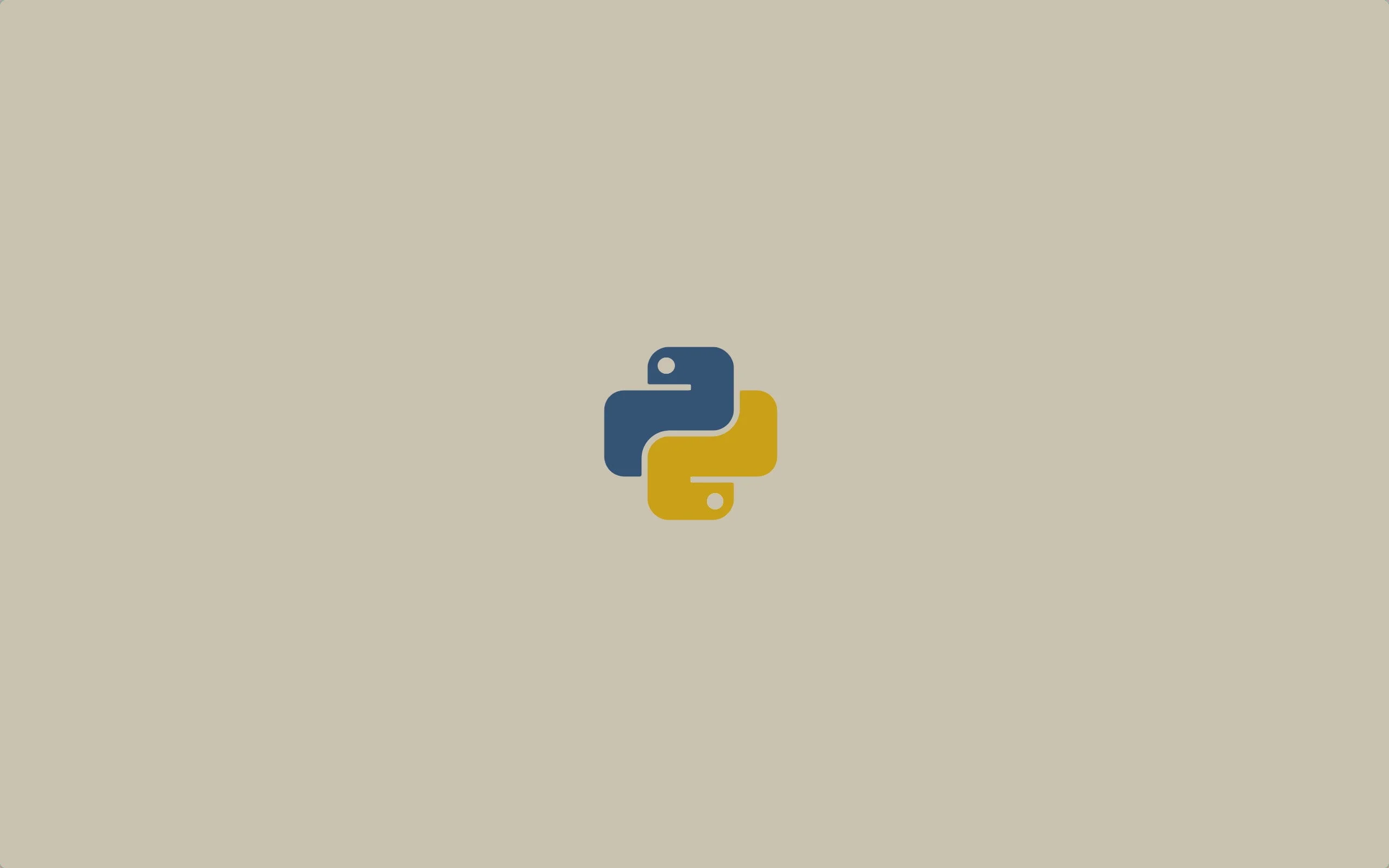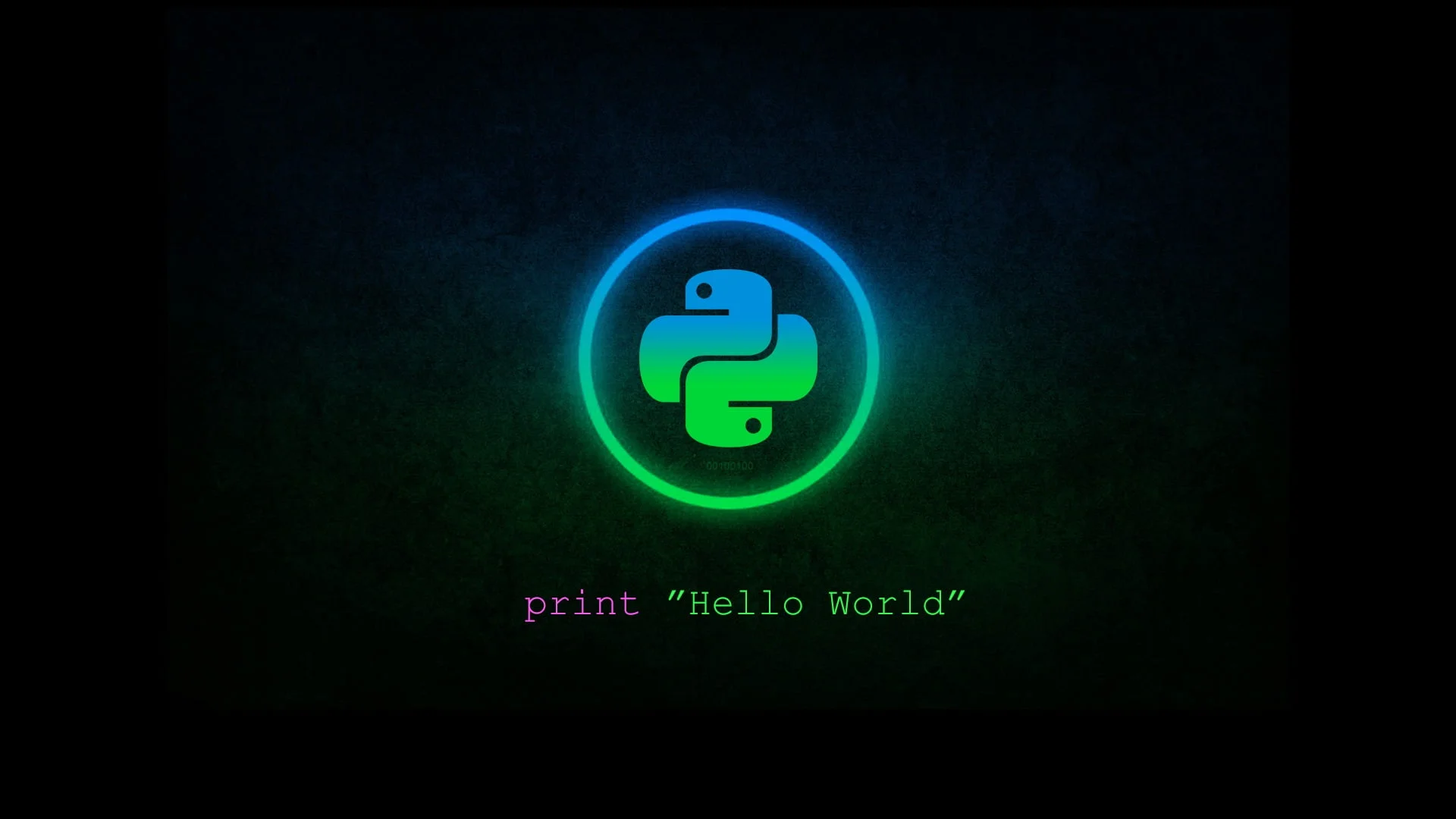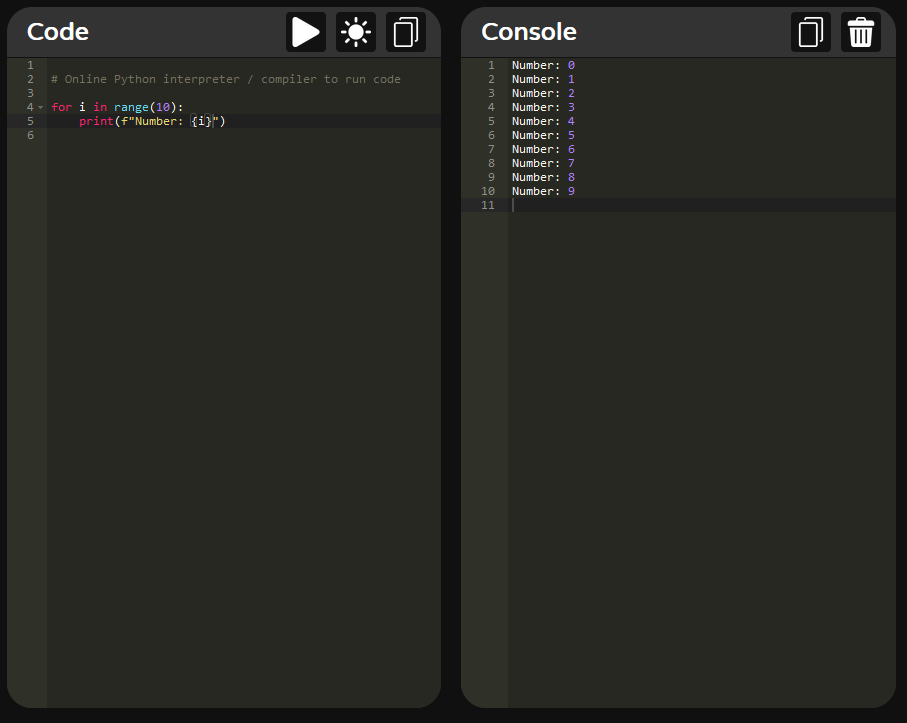How To Compile Python Code In Your Browser
What is Python?
High-level and multipurpose, Python is renowned for its ease of use and readability. Since its initial release in 1991, Python, which was created by Guido van Rossum, has grown to rank among the most widely used computer languages worldwide. Python is an interpreted language, which means that instead of being compiled into machine code, programming written in it is run line by line by an interpreter. This feature enables for a more dynamic and interactive programming process, making Python a good choice for both novices and seasoned coders.
Python's readability is one of its main advantages, which is made possible by its simple and concise grammar. The design philosophy of the language encourages developers to express concepts in fewer lines of code than could be possible in other languages, and it places a strong emphasis on code readability. Rather of using curly brackets or other explicit delimiters to identify code chunks, indentation improves readability. Python code is easy to write and comprehend due to its simplicity, which fosters teamwork and maintainability in software development projects.
Python is a general-purpose programming language, which means it may be used in a variety of fields, such as automation, data science, web development, artificial intelligence, and machine learning. Its vast standard library eliminates the need for developers to build code from scratch by offering modules and packages for a variety of activities. Furthermore, Python boasts a large and vibrant community that builds third-party libraries and frameworks to enhance the language's ecosystem and increase its functionality.
Support for many programming paradigms, such as procedural, object-oriented, and functional programming, is another noteworthy aspect of Python. Because of this versatility, developers can select the optimal strategy for the needs of their particular projects. It's also important to highlight Python's cross-platform compatibility, which allows programs to run without change on a variety of operating systems, facilitating portability and deployment simplicity. All things considered, Python's blend of readability, adaptability, and community support has led to its extensive industry acceptance, making it a great alternative for a wide range of applications.

What is a Python compiler?
A Python interpreter is a crucial component of the Python programming language that executes Python code. Unlike compiled languages such as C++ or Java, where code is translated into machine code before execution, Python code is interpreted at runtime. The interpreter reads the source code line by line and converts it into machine-readable bytecode, which is then executed by the computer's processor. This interpretative approach offers several advantages, including platform independence and ease of debugging, as developers can interact with the interpreter in real-time.
The Python interpreter plays a pivotal role in facilitating the language's dynamic features. Python is dynamically typed, meaning variable types are determined at runtime. The interpreter is responsible for managing these dynamic aspects, checking types and enforcing rules during execution. This dynamic nature, combined with the interpreter's ability to handle exceptions gracefully, contributes to Python's flexibility and user-friendly design.
Python interpreters are available for various platforms, ensuring compatibility across operating systems. CPython, the default and most widely used Python interpreter, is implemented in C and serves as the reference implementation. Other implementations, such as Jython (Python on the Java Virtual Machine) and IronPython (Python on the .NET Framework), demonstrate the language's adaptability to different environments. The interpreter's ability to interact with external libraries and modules, combined with its seamless integration with C/C++ code, makes Python a versatile language for diverse applications.
The development of the Python language is closely tied to its interpreters. As new language features and improvements are introduced, interpreter updates accommodate these changes. Python's global community actively contributes to the development of interpreters and ensures that they remain up-to-date and efficient. The interpreter, along with the broader Python ecosystem, has been a key factor in the language's popularity, providing developers with a powerful tool for creating a wide range of applications.

What are the benefits of running Python in your browser?
Running Python in a web browser using a website equipped with a Python compiler offers several compelling benefits. To begin with, a Python compiler on a website allows users to execute Python code directly within the browser environment. This eliminates the need for users to set up a local development environment or install Python on their machines, offering a convenient and accessible platform for coding on the go. The compiler takes care of translating Python code into executable instructions, enabling users to focus solely on writing and testing their code without the burden of dealing with local setup intricacies.
In the context of online Python compilers, the distinction between compilation and interpretation becomes noteworthy. While Python is generally considered an interpreted language, the compiler on these websites often works by transforming the Python code into an intermediate representation, such as bytecode, before interpretation. This hybrid approach, combining elements of both compilation and interpretation, can result in improved performance and efficiency, particularly in the context of browser-based execution. The compiler optimizes the code for better execution speed, enhancing the overall user experience when running Python programs directly in the browser.
Furthermore, the integration of an Integrated Development Environment (IDE) with the Python compiler on a website enhances the coding experience. An IDE provides a comprehensive set of tools, including code highlighting, auto-completion, and debugging features, all accessible within the browser. This setup streamlines the development process, offering a user-friendly interface that supports coding practices with features akin to those found in traditional desktop-based IDEs. Users can benefit from a cohesive coding environment without the need for extensive local installations, contributing to a more efficient and collaborative development workflow.
The flexibility provided by running Python in a browser extends beyond individual convenience. Collaborative coding and code-sharing become more accessible as users can simply share a link to the online Python compiler, allowing others to view, modify, and run the code without requiring them to install Python locally. This makes online Python compilers valuable tools for educational purposes, coding interviews, and collaborative projects, fostering a more inclusive and cooperative coding community. In summary, leveraging a Python compiler within a browser environment combines the accessibility of online coding with the efficiency of a fully-featured IDE, providing a versatile platform for Python development and collaboration.

What are the drawbacks of running Python in your browser?
Despite the advantages of running Python in a browser, there are some drawbacks associated with this approach. One notable limitation is the dependency on internet connectivity. Since browser-based Python compilers require an active internet connection to function, users may face challenges in situations where reliable connectivity is unavailable. This dependence can hinder developers who need to work in offline environments or in regions with intermittent internet access, restricting their ability to leverage the convenience of online Python compilers when and where they need it.

How can Python be compiled in a browser?
Python code can be compiled using our free and online Python compiler, this is a tool which turns your browser into an IDE which can execute Python code. We have optimized this code to ensure your Python code executes quickly, further increasing the amount of convenience this tool brings
